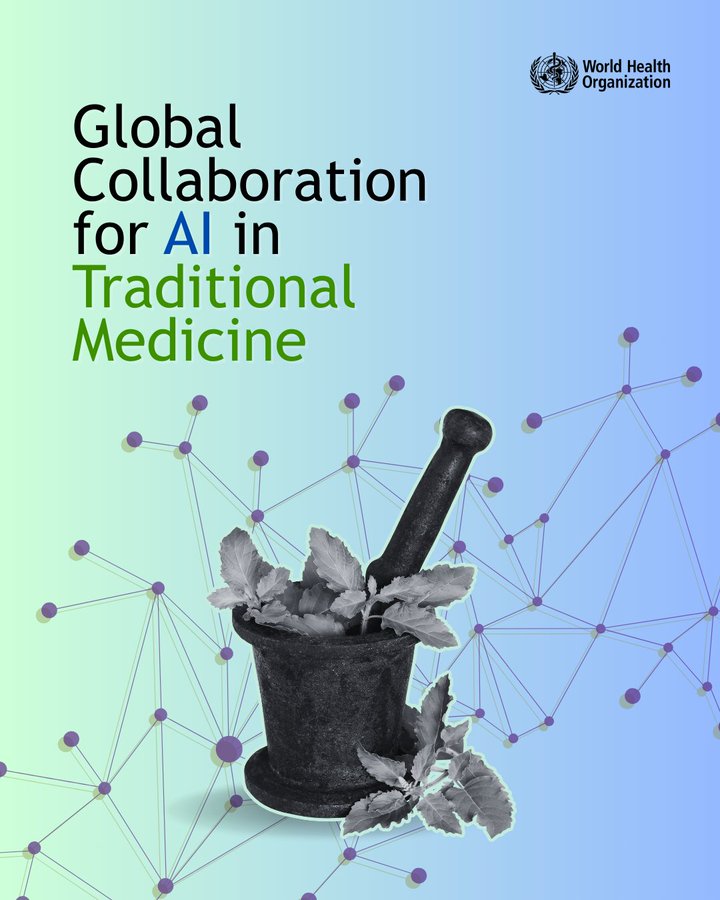
The World Health Organisation (WHO),
the International Telecommunication Union (ITU), and the World Intellectual
Property Organisation (WIPO) have jointly unveiled a technical report outlining
how artificial intelligence (AI) is transforming traditional medicine around
the world.
Launched during the AI for Good
Global Summit in Geneva, the report titled "Mapping the Application of Artificial Intelligence in Traditional Medicine" provides a detailed roadmap
for integrating AI into traditional, complementary, and integrative medicine
(TCIM) while safeguarding cultural heritage and Indigenous data rights.
"AI is opening new frontiers for personalised care, drug discovery, and biodiversity conservation,” said Dr Yukiko Nakatani, WHO Assistant Director-General for Health Systems.
“But AI
must not become a new frontier for exploitation.”
Traditional medicine is practised in 170 countries and serves billions globally.
With the global TCIM market expected to reach nearly US$600 billion this year, the report notes how AI is being deployed to enhance centuries-old practices.
This includes using machine
learning to identify medicinal plants in Ghana and South Africa, AI-powered
diagnostics in Ayurgenomics, and compound analysis for treating blood disorders
in South Korea.
The brief also highlights the
importance of ethical design, inclusive data, and local governance. It cites
initiatives such as India’s Traditional Knowledge Digital Library and the
Virtual Health Library in the Americas as examples of AI preserving indigenous
knowledge and preventing biopiracy.
“Intellectual property is a key tool
to accelerate AI integration into traditional medicine,” said WIPO Assistant
Director-General Edward Kwakwa, referencing WIPO’s newly adopted treaty on
genetic resources and traditional knowledge.
The document calls for urgent steps
to uphold Indigenous Data Sovereignty (IDSov) and ensure community-led
governance.
It showcases efforts from Canada,
New Zealand, and Australia, and calls on governments to adopt legal frameworks
that give Indigenous communities control over their data.
“This partnership of ITU, WHO, and
WIPO brings together the essential expertise to ensure AI solutions in health
are safe, effective, and ethical,” said Seizo Onoe, Director of the ITU
Telecommunication Standardization Bureau.
The report urges stakeholders to
invest in inclusive AI ecosystems, build digital literacy among traditional
medicine practitioners, and establish global ethical standards for AI use in
TCIM.
By aligning AI with traditional
medical wisdom, the report says, the world can usher in a new, equitable
healthcare model that respects cultural diversity while improving access to
safe and effective treatments.











